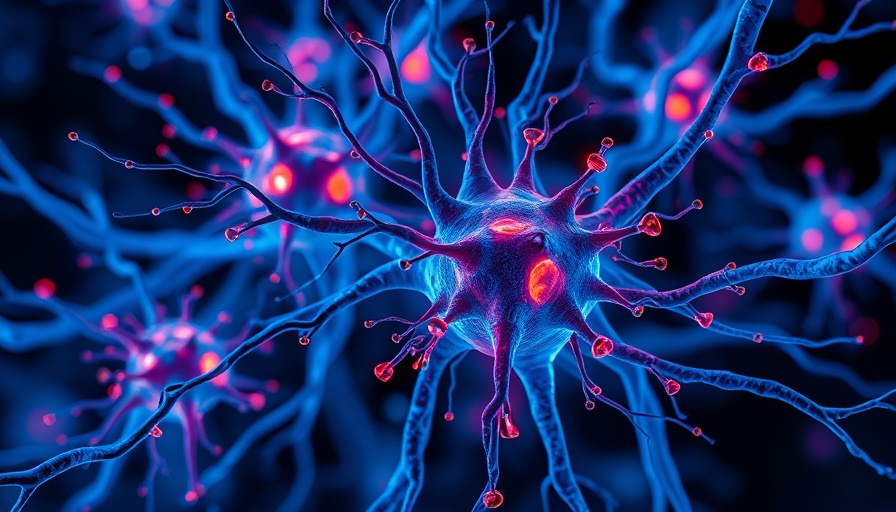
Unlocking the Mystery: How Nerve Cells Control Your Weight
Obesity has emerged as a pressing global health concern, impacting millions across diverse demographics. Recent advances in research signal promising pathways to tackle this issue, particularly in the field of neurology. A new discovery by researchers from the Max Planck Institute for Metabolism Research identifies a specific group of nerve cells in the hypothalamus of mice that play a crucial role in regulating eating behavior and consequently, body weight. This innovative insight not only sheds light on the complexities of obesity but also opens doors to the potential development of targeted anti-obesity medications.
The Role of Leptin and New Neuron Discoveries
A significant finding of this research is the influence of leptin—a hormone known for its appetite-suppressing properties—on the recently identified PNOC/NPY nerve cells. These neurons become particularly active when subjected to a high-fat diet. An intriguing aspect of the study reveals that approximately 10% of these nerve cells possess leptin receptors. When the receptor is removed, the result is an increase in food intake and subsequent weight gain in mice. This startling outcome indicates that even an apparently small subset of neurons can have profound effects on overall health.
Potential Implications for Anti-Obesity Treatments
As the medical community seeks novel solutions to combat obesity, this discovery highlights a vital target for future pharmacological interventions. "We hope that drugs acting on this specialized group of nerve cells will offer promising alternative therapies," says Jens Brüning, the study's head. For individuals struggling with obesity, this could translate into more effective treatments that work for a broader range of patients, particularly those who do not respond to existing medications or endure severe side effects.
Insights into the Intersection of Health and Nutrition
Understanding the interaction between these nerve cells and hormones like leptin also emphasizes the importance of lifestyle choices. While medications play a role, adopting a healthy diet and engaging in regular physical activity remain foundational components in managing weight. For many, integrating “naturally healthy” foods—like fruits, vegetables, lean proteins, and whole grains—into daily meals is essential in a comprehensive approach to vitality and wellness.
A Broader Perspective: Integrating Wellness Approaches
Moreover, this research invites a deeper exploration into the field of lifestyle medicine, which supports holistic approaches to enhancing well-being. These methods may involve considerations from naturopathy and nutritional supplements, complementing traditional treatments to foster optimum health. Exploring alternative medicine options like natural therapies for weight loss can also help many individuals find effective solutions that align with their personal health journeys.
Conclusion: A Call to Embrace Change
The discovery of these nerve cells offers a glimmer of hope in the ongoing battle against obesity. While understanding the mechanisms of weight regulation is critical, individuals must also consider the broader context of health and wellness in their lives. Exploring various avenues—including health and wellness products, community health events, and engaging in fitness routines—can enrich not only health outcomes but also overall quality of life.
As we await further developments on the pharmacological front, it becomes increasingly important for individuals and communities to take proactive steps toward healthier lifestyles. Explore the resources available in your area and join community health and wellness events focused on optimizing well-being. Embrace the journey toward better health, utilizing both scientific advancements and personal motivation.
 Add Row
Add Row  Add
Add 




 Add Row
Add Row  Add
Add 


Write A Comment